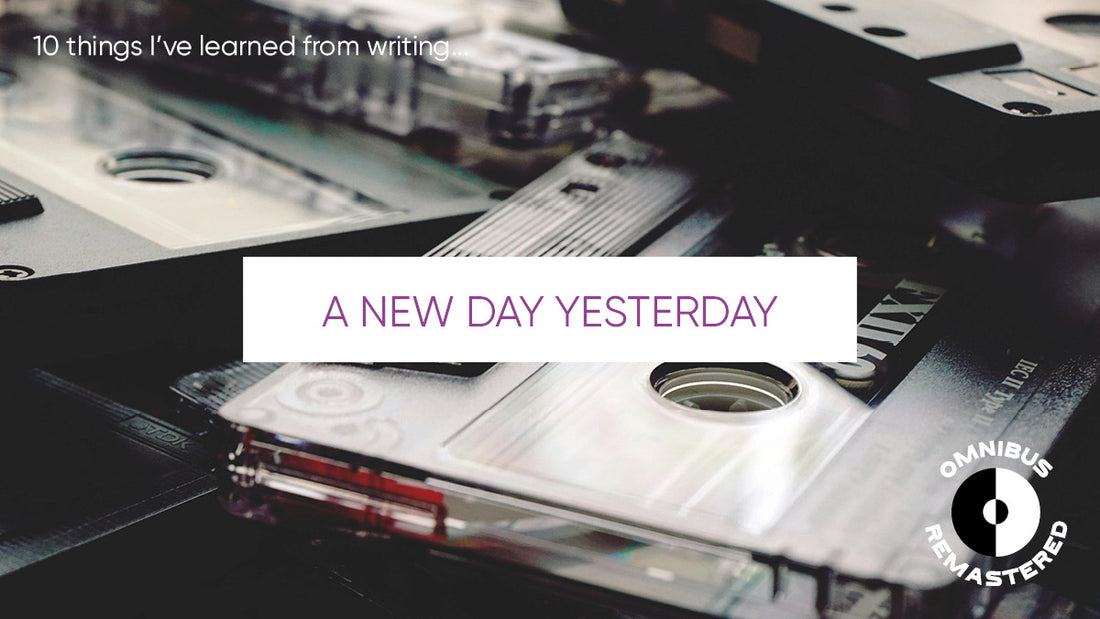
10 Things I've Learned From Writing... A New Day Yesterday
Share
This year we have been launching our remastered editions of classics celebrating the best music books we've published in the past 50 years. One such book is Mike Barnes' account of prog rock in the 1970s.
"Prog’s essential guide” - Sir Ian Rankin
We asked Mike to share 10 things he learnt from writing this epic.


1. Don’t always trust your first instinct
When asked by my former agent to write a book on progressive rock, I immediately declined. I had grown up with the music but felt I had left it behind, or vice versa. But as soon as I suggested another potential author, I suddenly felt protective of the idea and was relieved when he turned it down.
I wanted to get the story from those who had made the music by conducting as many interviews as possible, as well as going through my archive. I seriously under-estimated the amount of work this would involve, but it certainly gave the book heft.
2. Always keep your interview recordings safe
You never know when you will need them. I found a few unused nuggets on digital files, minidiscs and tapes, some nearly 20 years old, but unfortunately lost a couple of important ones along the way.
3. Obsession has its place
While I was writing my first book, Captain Beefheart: The Biography, I complained to a fellow writer that I was becoming obsessed, to which she said, “If you weren’t obsessed you would never do it”.
It’s not easy to become obsessed, though, and when I started A New Day Yesterday I prodded around at a few ideas and as it all seemed so stilted.
Luckily each chapter is a discrete entity and when I was writing the chapter on Genesis late one night, and the style clicked into place. I thought, “This is actually pretty good” and was obsessed thereafter.
It’s also not easy to become de-obsessed and the monomania it produces causes worrying memory lapses, and a state bordering on personal neglect.
Late one night I looked down while writing and was alarmed to note that in an inadvertent twist of the ‘wacky’ fashion statement, I was wearing matching socks but odd shoes.
4. Writing is neither good for one’s health nor bank balance.
When I was writing A New Day Yesterday I started smoking again, although since then, as Peter Gabriel sang on ‘Sledgehammer’, “I kicked the habit, kicked the habit”. Yes, twice.
At one point, with the advance long gone, I was spending so much time on the book and so little time on paid work, that I got seriously into debt and even considered equity release on my modest house, but thankfully, good sense prevailed. For a while I regretted ever having started it.
5. Both time and word length become elastic concepts.
Without wishing to encourage bad habits in other writers, I recall thinking that the approximate word length of 150,000 stipulated in the contract, was a bit long and asked for it to be reduced – somewhat ironically as I then ended up overwriting to a spectacular degree.
I was well on course for writing even more until I totted up the word length, and got a cold sick feeling in my stomach. I was also supposed to deliver it within 18 months but crashed through that particular barrier and a number of subsequent ones. When I finally sent the manuscript over to Omnibus nearly four years late, they were shocked by its enormity. The editorial process concluded with me cutting out something like 30,000 words myself and it still passed the 600-page barrier.
With font size adjustments, this remastered edition is equally lengthy but more portable.
6. Getting a title is not as easy as it might seem.
Early on I had some lame ideas for the book’s title, which I’m not going to reveal. And given that progressive rock gets a bad press from people who think of it as fusty old blokes’ music, I thought it important to convey the idea that in its heyday, this was music made by young people for young people and was exciting and ground-breaking. In this regard, I thought that Days Of Future Passed might work. I explained my ideas to fellow music journalist Jo Kendall on our third date in 2018 and after about five seconds, she said “A New Day Yesterday”. I knew then that she was definitely the girl for me.
7. Beware the jealous would-be writer.
When you have written a book, some people who like what you are writing about won’t like you writing about it because they wish they had written about it themselves. But they didn’t and you did. And as the bard said, “There’s the rub”.
Some can get territorial, and the progressive rock audience is notorious for this. But all the reviews have been positive and there has been a minimum of online sniping. Someone did huffily comment that they hadn’t read anything in it they didn’t already know – presumably because they had conducted the same 100 interviews as myself that formed the basis of the narrative. But I can live with that.
8. Beware Amazon reviews
As so many people use the online retail giant, its product reviews are presumably written by a representative cross section of the populace. So why are some many so bafflingly odd?
The first Amazon review was titled, “Not Quite What It Says On The Tin”, with the reviewer disappointed that the book only covers the time period that is stated in the title. What can you do? I read another one, which was more positive. But unlike Orpheus, who sneaked a disastrous peak at Eurydice as they emerged from the Underworld, I resisted reading any more.
9. Musicians are generally pretty interesting people
Some of the interviewees for the book are musicians I hold in very high regard, others slightly less so, but each has their motivation, their own story, struggles and successes. As a musician myself I find even small details about the creative process fascinating. Almost all were generous with their time and I made some friends along the way.
10. The benefits of writing a book
I’ve gained a great deal of satisfaction for having been recognised for doing justice to the subject, especially by musicians Steve Howe, Sonja Kristina and Bill Bruford, who have endorsed the remastered edition, and Steve Hackett who has written the foreword.
Then there is recognition as ego-maintenance, which every writer needs from time to time. Possibly the greatest honour of all is that some people have got in touch saying that they have read A New Day Yesterday more than once, just as I have done with Julian Cope’s Krautrocksampler, Simon Reynolds’ Rip It Up And Start Again and Nick Kent’s The Dark Stuff. And that means that they really like it. And if you haven’t picked up a copy yet I hope that it becomes a favourite.
I gave it my best shot, mostly in 9/8 time, with occasional bars of 7/4 and 5/8.
11. It’s difficult condensing topics into 10 neat points
To complete the details in point 5) I had to ask Omnibus to sent me a copy of my contract as I couldn’t find mine. Always keep that safe as well.
